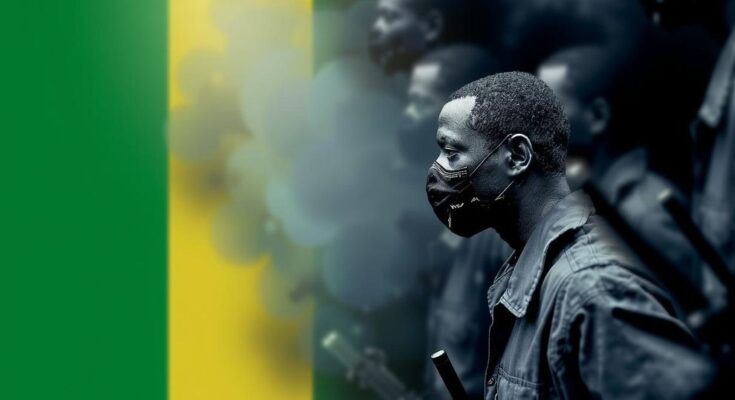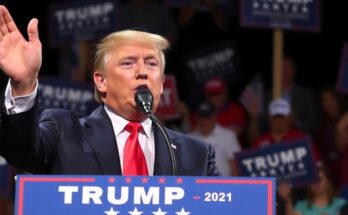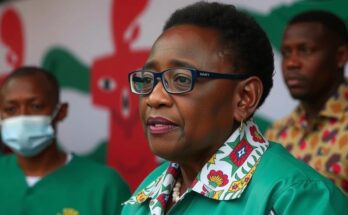Uganda and Zimbabwe face escalating governmental repression against opposition figures and human rights activists. Uganda’s Anti-Homosexuality Act imposes harsh penalties, raising global concerns. In Zimbabwe, opposition leaders face systemic oppression under President Mnangagwa. Both countries’ upcoming elections highlight the urgent need for international scrutiny and support for democratic practices and human rights.
The political landscape in Uganda and Zimbabwe is increasingly alarming due to government crackdowns on opposition figures and human rights activists, raising profound concerns about democracy and civil liberties. In Uganda, the passage of the 2023 Anti-Homosexuality Act, which imposes severe penalties for homosexual acts—including life imprisonment and even the death penalty for “aggravated homosexuality”—is particularly troubling. This legislation has drawn global condemnation, prompting a mixed response, with the World Bank halting lending and the US implementation of targeted sanctions against President Yoweri Museveni’s government.
Uganda’s political environment is characterized by heightened repression, especially as elections approach, as evidenced by the abduction of opposition leader Kiiza Besigye by state security forces upon his return from Kenya. This incident emphasizes the lengths to which the regime will go to stifle dissent.
In Zimbabwe, the release of 35 opposition leaders, including Jameson Timba, who were detained for over five months under dubious charges following peaceful assembly, further exemplifies the systemic oppression under President Emmerson Mnangagwa’s administration. The legal actions taken against these activists reveal a troubling continuity of repressive tactics reminiscent of former president Robert Mugabe’s era. Timba’s defense illustrated the absurdity of their charges, labeling their gathering for a social event as criminal.
Additionally, Uganda’s growing ties with Russia have raised international concern as it reportedly engages in promoting anti-LGBT sentiment throughout Africa, complicating the political landscape further. Furthermore, the abduction of Mr. Besigye from Kenyan territory complicates diplomatic relations, raising questions regarding Kenya’s stance on human rights in the region.
As Uganda and Zimbabwe head toward elections, they both face a myriad of challenges, with governments employing strategies to stifle opposition and undermine democratic principles. The international community’s responses, especially the EU’s prioritization of economic interests over human rights, raises pivotal questions on how to engage with such oppressive regimes without further complicity.
The overarching narrative in both nations remains one of a desperate call for genuine democratic reform and accountability, as citizens yearn for justice amidst increasing repression. The need for international actors to reassess their engagement strategies while upholding human rights commitments is crucial for the progress of civil liberties in Uganda and Zimbabwe.
The political climates in Uganda and Zimbabwe are overtly characterized by authoritarian practices and efforts to suppress dissent. In Uganda, legislation like the Anti-Homosexuality Act threatens the safety of many citizens and curtails human rights work, while the government clamps down on political opposition. Zimbabwe parallels this with a legal system that has historically been utilized to repress dissent, echoing the tactics of past leadership. Both countries are on the brink of elections, where fears of intensified governmental oppression loom, necessitating scrutiny from the international community regarding their responses and engagements.
Uganda’s regional dynamics complicate matters with Kenya’s tacit involvement in Ugandan state actions, while Zimbabwe grapples with continuing allegations against its leadership’s repressive tactics, raising alarms among human rights organizations and civic-minded individuals.
In summary, both Uganda and Zimbabwe present troubling examples of increasing governmental repression against opposition voices and civil society, particularly as they approach pivotal elections. The mixed reactions from the international community, particularly from the EU and the US, reflect a critical juncture where diplomacy must balance engagement with robust human rights advocacy. A collective global effort is required to ensure that the aspirations of the citizens for true democratic engagement are realized, underscoring the importance of accountability and justice in these nations.
Original Source: evrimagaci.org




